Data Science & Metadata Research
To be discoverable by today’s online users, traditional library data must be transformed. OCLC Research analyzes bibliographic data to derive new meaning, insights, and services for use by library and information seekers. This work includes special projects in metadata enrichment, authorities & identities, linked data, subjects & classification, and data analysis.
Publications
-

Envisaging the Future of Metadata
6 February 2025
Annette Dortmund
Explores the evolving landscape of metadata, highlighting the importance of balancing innovation with stability. It discusses the role of AI, the shift towards context-driven metadata, and the need for openness, accessibility, sustainability, and persistence in metadata management.
-

A conceptual model for tracking the provenance of activities in knowledge organization systems
23 September 2024
Inkyung Choi, Yi-Yun Cheng
Proposes ProvKOS, a conceptual model for tracking the provenance of change activities in knowledge organization systems.
-
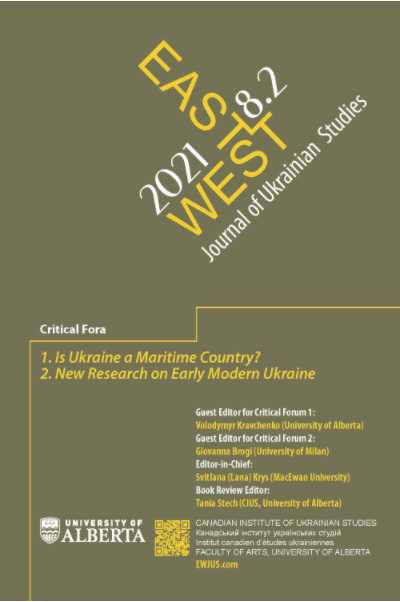
The Ukrainian Kyrylytsia, Restored: An Automation Project for Adding the Cyrillic Fields to Ukrainian Records in OCLC WorldCat
18 October 2021
Jenny Toves, Roman Tashlitskyy, Lana Soglasnova
A report on the work to add Cyrillic text to 30,000 Ukrainian records in Worldcat. This is part of a continuing effort that has added Cyrillic text to 1.1M Russian records and 25,000 Bulgarian records in Worldcat making the records more accessible to native speakers. The report discusses the obstacles involved when transliterating Latin text back to Cyrillic.
-
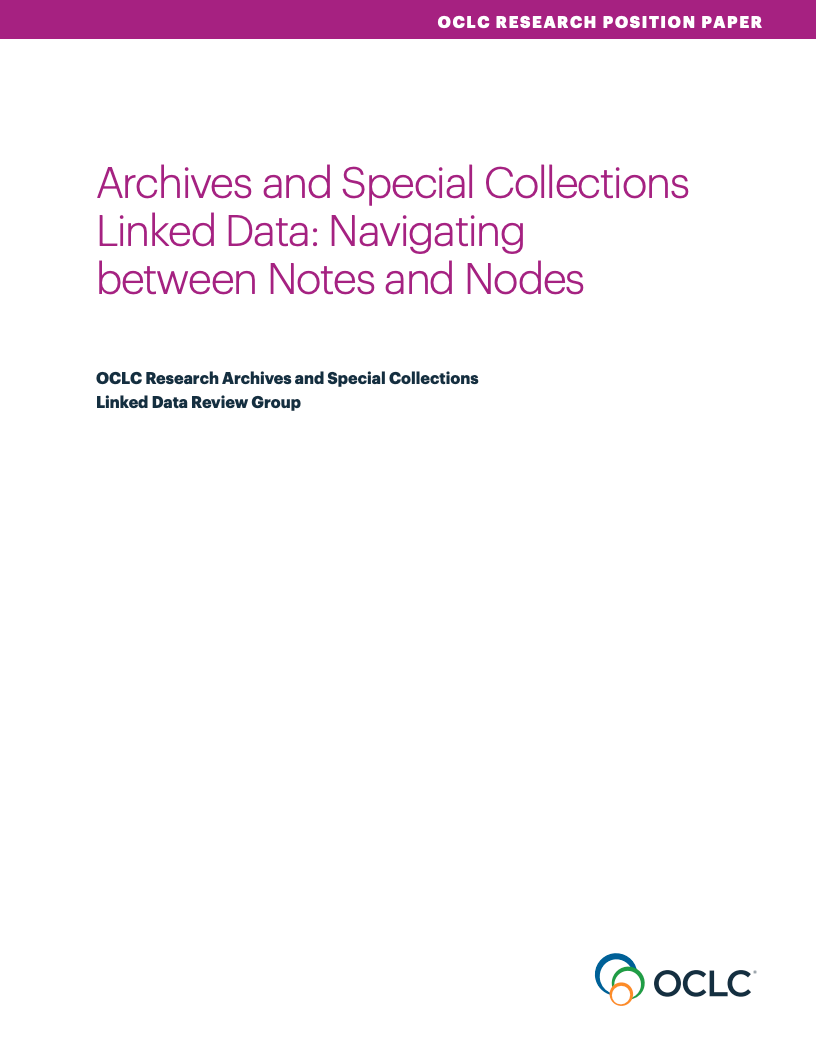
Archives and Special Collections Linked Data: Navigating between Notes and Nodes
21 July 2020
OCLC Research Archives and Special Collections Linked Data Review Group
This publication shares the findings from the Archives and Special Collections Linked Data Review Group, which explored key areas of concern and opportunities for archives and special collections in transitioning to a linked data environment.
-
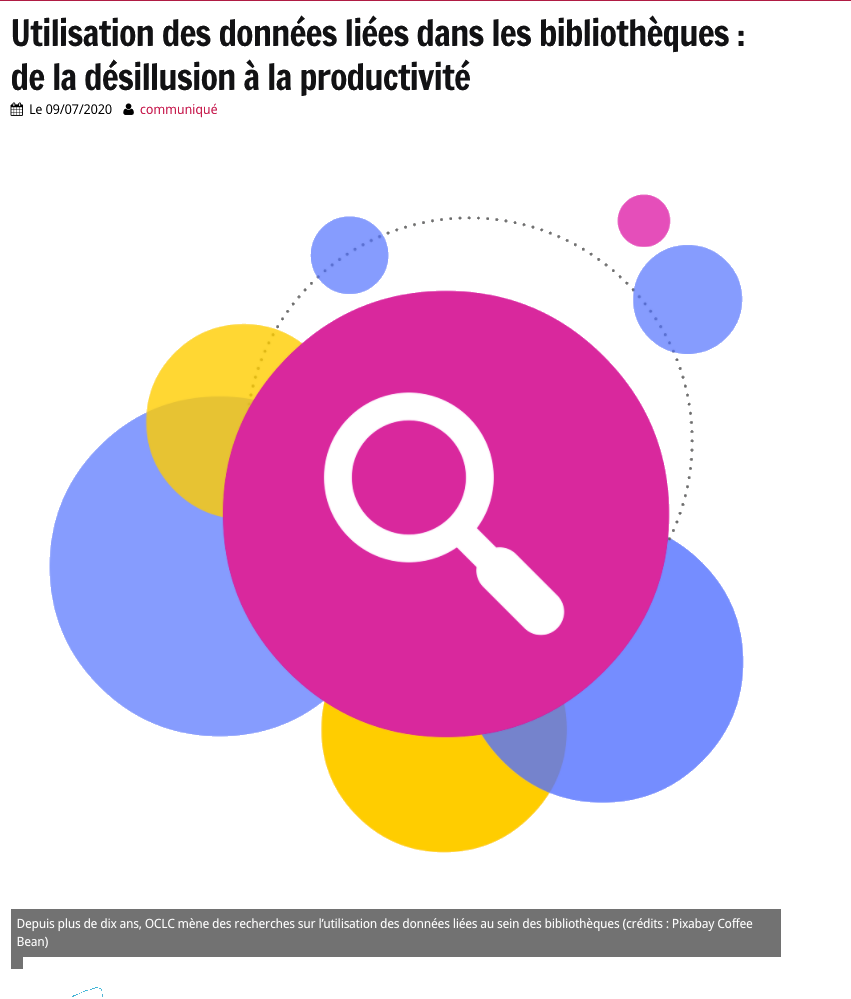
Utilisation des données liées dans les bibliothèques : de la désillusion à la productivité
9 July 2020
Andrew K. Pace
OCLC has been researching the use of linked data within libraries for more than a decade. It is sometimes difficult to know exactly where the value of linked data lies and what benefits we can derive from it. It is wise, therefore, to consider their usefulness from the point of view of library staff. What does "linked data productivity" mean? What would cataloging linked data change for library staff and end users? This article responds to these questions and provides some perspective on the linked data landscape for libraries.
-

Mapping ONIX to MARC
1 April 2020
Jean Godby
These documents present an interpretation of a crosswalk from ONIX 2.1 to MARC 21 developed by OCLC and made publicly available from the OCLC Web site and EDItEUR. This work represented a major upgrade in the statement of how data for bibliographic description can be exchanged between two standards that are widely used in the library and publishing communities.
-
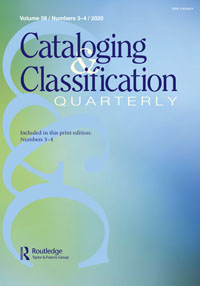
Exploring Models for Shared Identity Management at a Global Scale: The Work of the PCC Task Group on Identity Management in NACO
9 December 2019
Erin Stalberg, John Riemer, Andrew MacEwan, Jennifer A. Liss, Violeta Ilik, Stephen Hearn, Jean Godby, Paul Frank, Michelle Durocher, Amber Billey
This paper discusses the efforts of the PCC Task Group on Identity Management in NACO to explore and advance identity management activities.
-
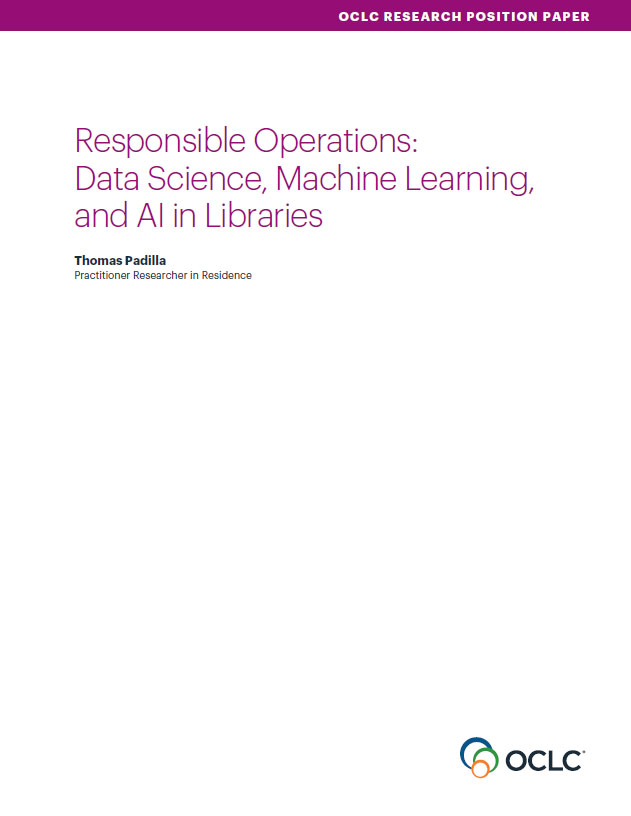
Responsible Operations: Data Science, Machine Learning, and AI in Libraries
8 December 2019
Thomas Padilla
Responsible Operations is intended to help chart library community engagement with data science, machine learning, and artificial intelligence (AI) and was developed in partnership with an advisory group and a landscape group comprised of more than 70 librarians and professionals from universities, libraries, museums, archives, and other organizations.
-
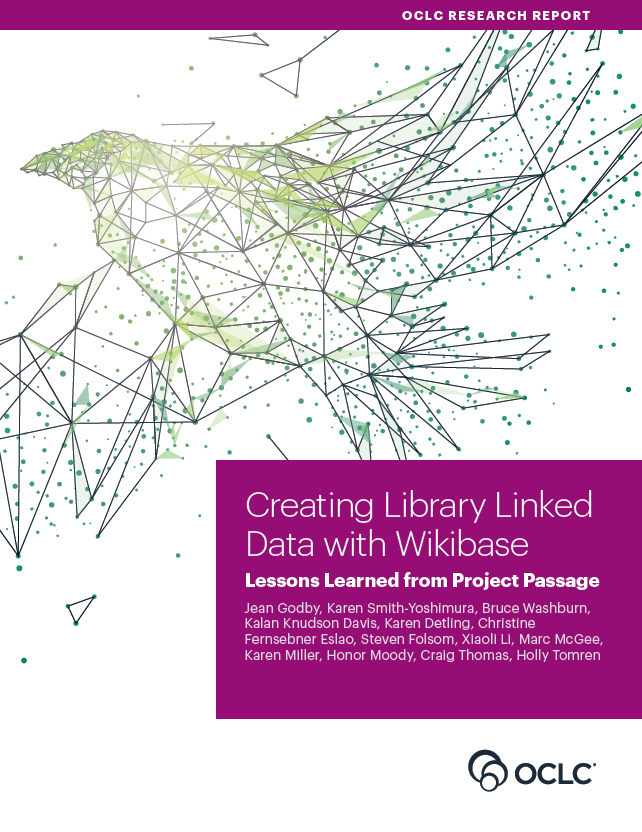
Creating Library Linked Data with Wikibase: Lessons Learned from Project Passage
5 August 2019
Jean Godby, Karen Smith-Yoshimura, Bruce Washburn, Kalan Knudson Davis, Karen Detling, Christine Fernsebner Eslao, Steven Folsom, Xiaoli Li, Marc McGee, Karen Miller, Honor Moody, Craig Thomas, Holly Tomren
“Project Passage” is an OCLC Research Wikibase prototype that explores using linked data in library cataloging workflows. The report overviews the prototype’s development, its adaptation for library use, and eight librarians’ experiences with the editing interface to create metadata for resources.
-
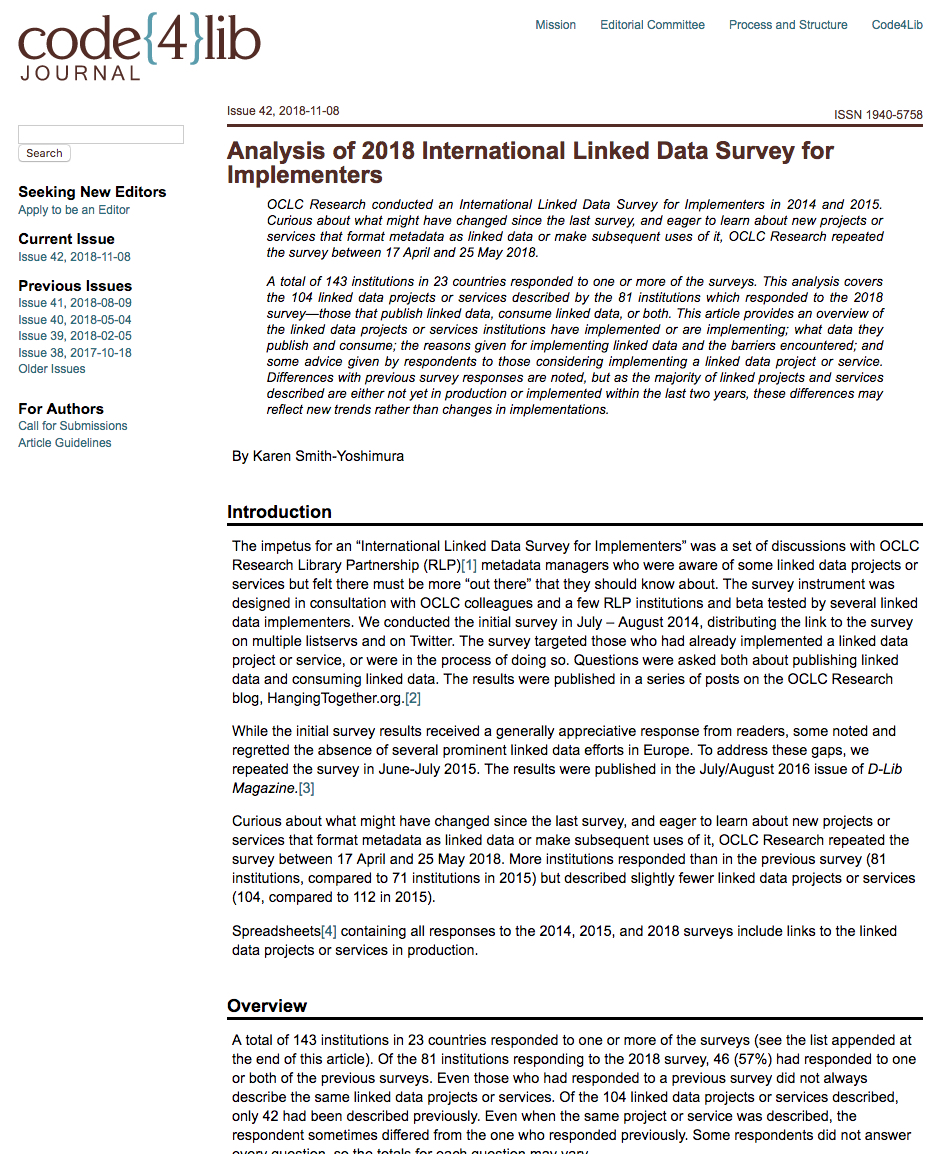
Analysis of 2018 International Linked Data Survey for Implementers
8 November 2018
Karen Smith-Yoshimura
Using the 2018 International Linked Data Survey results, this article overviews the linked data projects or services implemented by institutions, what data they publish or consume, why they implemented linked data, challenges faced, and advice for institutions considering a linked data project or service.